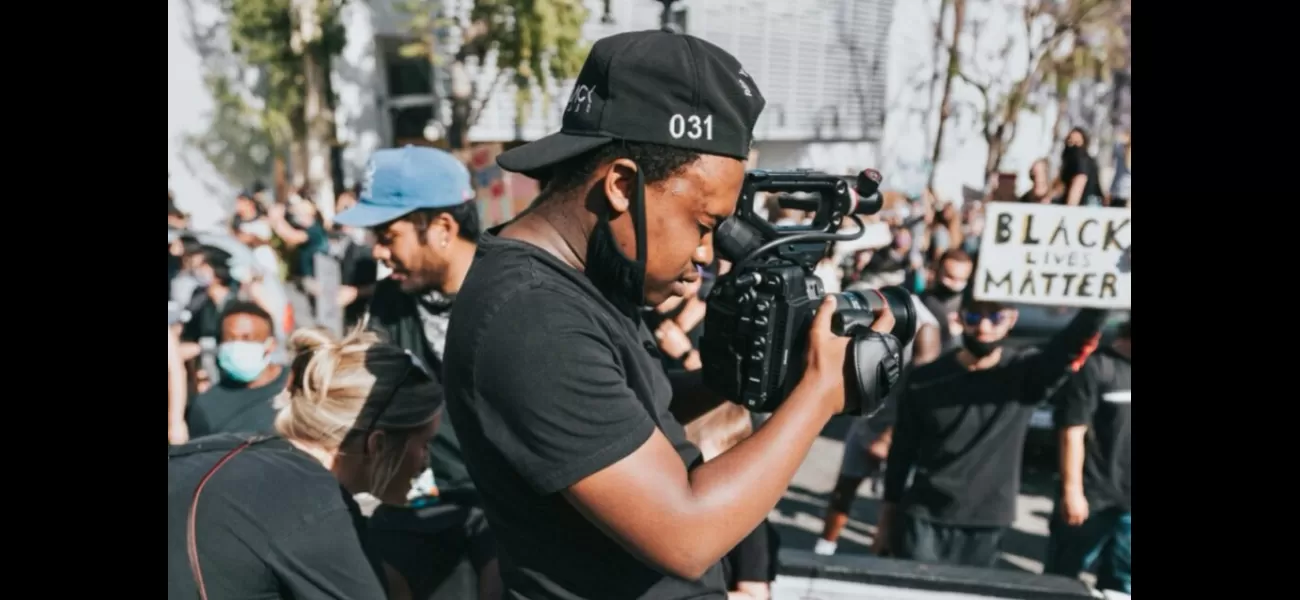A fund is available for black journalists to seek therapy and maintain their mental health while reporting on the frontlines.
The Black Journalist Therapy Relief Fund helps support Black journalists reporting on racial injustice.
June 3rd 2024.

Too often, we come across stories of racial injustice in America without giving much thought to the Black journalists who are behind these powerful narratives. They often have to push aside their own personal trauma in order to bring these stories to light. This is one of the reasons why Sonia Weiser, a journalist herself, established the Black Journalist Therapy Relief Fund in May 2020. The main purpose of this fund is to provide support to Black journalists who are on the front lines, reporting on issues of racial injustice, but do not have the financial means to seek mental health treatment. During the height of the widespread unrest following the tragic murder of George Floyd, many Black journalists were faced with the demanding task of delivering unbiased reporting on the nationwide turmoil. However, they were often left with little to no resources to help them process the emotional toll that came with the job, both on and off the field.
According to Robin D. Stone, a licensed mental health counselor who specializes in trauma-informed treatment, Black journalists, much like nurses or psychotherapists, are at risk of experiencing vicarious trauma due to their regular exposure to the traumatic experiences of others. They may find themselves feeling vulnerable, as the person on the respirator or in the violent video could easily be someone they know or even themselves.
On top of dealing with the emotional burden of their work, many Black journalists also feel misrepresented and underrepresented in their workplaces. The American Society of News Editors reports that Black journalists only make up a small percentage (6.56%) of newsroom staff and leadership positions across the country. In response to this, Weiser, a white journalist, created a GoFundMe page to raise funds for the Black Journalists Therapy Relief Fund. She was inspired to do so after witnessing numerous media outlets seeking out Black writers to cover stories about racial violence and protests following George Floyd's death.
Weiser's efforts were met with an overwhelming response, as the initial goal of $20,000 was quickly surpassed, with over $32,000 being raised within 48 hours. In just 30 days, the fund accumulated over $70,000. As a result, the Black Journalists Therapy Relief Fund partnered with the International Women's Media Foundation to expand its reach and continue supporting Black journalists of all genders, ages, experience levels, and backgrounds.
With the help of the IWMF, the fund was able to provide microgrants to 84 applicants in 2020, many of whom did not have health insurance to cover their mental health expenses. One of the beneficiaries, Natelegé Whaley, was able to start seeing a therapist twice a week for six months, thanks to the fund. She expressed her gratitude, stating that even though journalists do get paid for their work, they are often put in a vulnerable position as their employers profit from their emotional and mental labor. While telling these important stories is crucial, few consider whether Black freelancers have the necessary resources to maintain their well-being during these challenging times.
For those interested in supporting the Black Journalists Therapy Relief Fund, donations can be made through their website. Journalists who are in need of assistance can also apply for microgrants through the International Women's Media Foundation. It is crucial to recognize and support the mental health of Black journalists, especially in the face of the current social and political climate. As a community, we must do our part to ensure that they have the necessary resources to continue their important work.
According to Robin D. Stone, a licensed mental health counselor who specializes in trauma-informed treatment, Black journalists, much like nurses or psychotherapists, are at risk of experiencing vicarious trauma due to their regular exposure to the traumatic experiences of others. They may find themselves feeling vulnerable, as the person on the respirator or in the violent video could easily be someone they know or even themselves.
On top of dealing with the emotional burden of their work, many Black journalists also feel misrepresented and underrepresented in their workplaces. The American Society of News Editors reports that Black journalists only make up a small percentage (6.56%) of newsroom staff and leadership positions across the country. In response to this, Weiser, a white journalist, created a GoFundMe page to raise funds for the Black Journalists Therapy Relief Fund. She was inspired to do so after witnessing numerous media outlets seeking out Black writers to cover stories about racial violence and protests following George Floyd's death.
Weiser's efforts were met with an overwhelming response, as the initial goal of $20,000 was quickly surpassed, with over $32,000 being raised within 48 hours. In just 30 days, the fund accumulated over $70,000. As a result, the Black Journalists Therapy Relief Fund partnered with the International Women's Media Foundation to expand its reach and continue supporting Black journalists of all genders, ages, experience levels, and backgrounds.
With the help of the IWMF, the fund was able to provide microgrants to 84 applicants in 2020, many of whom did not have health insurance to cover their mental health expenses. One of the beneficiaries, Natelegé Whaley, was able to start seeing a therapist twice a week for six months, thanks to the fund. She expressed her gratitude, stating that even though journalists do get paid for their work, they are often put in a vulnerable position as their employers profit from their emotional and mental labor. While telling these important stories is crucial, few consider whether Black freelancers have the necessary resources to maintain their well-being during these challenging times.
For those interested in supporting the Black Journalists Therapy Relief Fund, donations can be made through their website. Journalists who are in need of assistance can also apply for microgrants through the International Women's Media Foundation. It is crucial to recognize and support the mental health of Black journalists, especially in the face of the current social and political climate. As a community, we must do our part to ensure that they have the necessary resources to continue their important work.
[This article has been trending online recently and has been generated with AI. Your feed is customized.]
[Generative AI is experimental.]
0
0
Submit Comment





